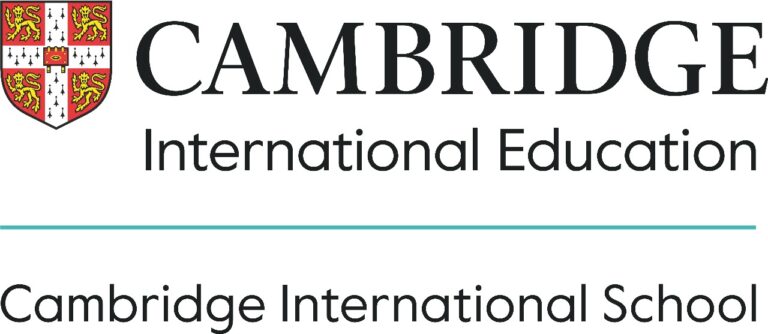![]()
Benefits of creative writing for students go beyond academics, fostering intellectual, emotional, and social development. Through storytelling, poetry, and personal essays, students enhance critical skills that shape their overall growth. Creative writing nurtures imagination, improves communication, and strengthens problem-solving abilities. It also boosts self-expression, builds confidence, and enhances cognitive skills, making learning more engaging and effective.
Moreover, it encourages empathy by allowing students to explore diverse perspectives and emotions. By incorporating creative writing into their education, students develop a deeper understanding of language and storytelling, which benefits them academically and personally.
This article explores six key advantages of creative writing and its positive impact on students’ learning journeys.
There Are Multiple Benefits of Creative Writing for Students
1. Enhances Communication Skills
Effective communication is a crucial skill for academic success and future professional growth. Benefits of creative writing for students include the ability to express ideas clearly and confidently. Engaging in creative writing strengthens communication in various ways:
- Active Listening and Expression: Writing encourages students to be more attentive to language, fostering active listening skills. It enables them to articulate their thoughts with clarity and precision.
- Vocabulary Expansion: Crafting diverse narratives exposes students to new words and phrases, enriching their vocabulary. A strong vocabulary enhances both written and verbal communication.
- Structured Thinking and Articulation: Organizing stories and ideas in a logical sequence improves students’ ability to present their thoughts coherently. This skill is invaluable for academic writing, public speaking, and daily interactions.
By developing these communication skills, students become more confident in expressing themselves in different settings. Whether writing essays, delivering speeches, or engaging in discussions, creative writing helps students refine their ability to convey messages effectively. Additionally, mastering communication through writing builds a strong foundation for future careers, where clear and persuasive expression is essential. Ultimately, creative writing empowers students to communicate their ideas with impact and confidence.
2. Boosts Emotional Intelligence
Benefits of creative writing for students extend beyond academics, playing a key role in emotional intelligence development. Emotional intelligence is essential for personal and social growth, and creative writing helps students enhance self-awareness, empathy, and emotional regulation in the following ways:
- Self-Reflection: Writing provides students with a safe space to explore their emotions, thoughts, and experiences. It encourages introspection, helping them better understand their feelings and personal growth.
- Empathy Development: By creating characters with diverse backgrounds, emotions, and challenges, students step into different perspectives. This practice fosters empathy, allowing them to connect with others on a deeper level.
- Emotional Regulation: Expressing emotions through writing serves as a healthy outlet for managing stress, anxiety, and other emotions. It helps students process their feelings constructively, improving emotional resilience.
By developing emotional intelligence through creative writing, students gain essential life skills that enhance their relationships and overall well-being. They become more in tune with their own emotions while also understanding the emotions of those around them. Ultimately, creative writing equips students with the ability to navigate personal and social interactions with confidence, empathy, and emotional maturity.
3. Stimulates Creativity and Imagination
Benefits of creative writing for students include fostering creativity and imagination, which are essential in today’s dynamic world. Creative writing nurtures originality and innovative thinking by encouraging students to explore new ideas and perspectives.
- Idea Generation: Writing prompts and storytelling exercises push students to think beyond conventional ideas. They learn to develop unique concepts, enhancing their ability to generate original thoughts.
- Problem-Solving Skills: Creating engaging narratives requires students to build logical plotlines and resolve conflicts creatively. This process strengthens their problem-solving skills and adaptability.
- Innovative Thinking: Writing allows students to experiment with different perspectives, genres, and characters, encouraging unconventional and innovative thinking. It helps them embrace diverse viewpoints and think beyond limitations.
By engaging in creative writing, students develop a mindset that values creativity in all aspects of life. Whether in academics, professional fields, or everyday challenges, the ability to think imaginatively and solve problems creatively becomes a valuable asset. Encouraging students to express their ideas through writing not only enhances their storytelling abilities but also equips them with critical thinking skills that will benefit them in the future. Ultimately, creative writing empowers students to become innovative thinkers and confident creators.
4. Improves Academic Performance
Benefits of creative writing for students extend to academic success by strengthening key skills that enhance overall learning. Engaging in creative writing refines students’ analytical, writing, and comprehension abilities, contributing to improved academic performance.
- Enhanced Writing Proficiency: Regular creative writing practice helps students develop stronger grammar, sentence structure, and coherence. As they refine their storytelling, their academic writing skills also improve.
- Critical Thinking: Analyzing characters, themes, and narratives encourages students to think deeply and critically. This skill is essential for problem-solving, reasoning, and making well-supported arguments in academic subjects.
- Interdisciplinary Benefits: The analytical and comprehension skills gained from creative writing extend to other subjects like literature, history, and even science. Understanding narrative structures and themes helps students interpret complex texts and construct well-organized responses.
By incorporating creative writing into their education, students build a strong academic foundation that enhances their ability to express ideas effectively. Whether crafting essays, research papers, or literary analyses, the skills developed through creative writing contribute to higher academic achievement. Ultimately, creative writing not only enriches students’ creativity but also strengthens their overall academic capabilities, preparing them for success in various disciplines.
5. Builds Confidence and Self-Esteem
Benefits of creative writing for students include fostering confidence and self-esteem, which are essential for personal and academic growth. Writing allows students to express themselves freely, giving them a sense of accomplishment and self-worth.
- Ownership of Work: Crafting original stories, poems, or essays gives students a sense of pride in their creativity. Seeing their ideas come to life on paper builds confidence in their abilities.
- Positive Feedback: Sharing their writing with peers and teachers provides opportunities for constructive feedback. Encouraging responses help students gain self-assurance and recognize their strengths.
- Public Speaking Opportunities: Presenting their written work in class discussions, writing competitions, or storytelling sessions enhances students’ public speaking skills. This experience strengthens their ability to communicate ideas with clarity and confidence.
By engaging in creative writing, students learn to trust their voice and express their thoughts boldly. The process of writing, sharing, and receiving feedback cultivates resilience and a positive self-image. As they gain recognition for their ideas, they become more confident in their academic and personal endeavors. Ultimately, creative writing empowers students to embrace their creativity, take pride in their achievements, and develop strong self-esteem.
6. Provides Therapeutic Benefits
Benefits of creative writing for students extend to mental well-being, offering a therapeutic outlet for self-expression and emotional processing. Writing serves as a powerful tool for managing emotions, reducing stress, and fostering mindfulness.
- Stress Relief: Journaling, storytelling, or poetry writing allows students to express their thoughts and emotions freely. This creative outlet helps them release stress and anxiety in a healthy and constructive manner.
- Emotional Healing: Writing about personal experiences, challenges, or emotions can be a cathartic process. It enables students to process their feelings, gain clarity, and find comfort in self-expression.
- Mindfulness Practice: Engaging in writing requires focus and presence, promoting mindfulness. The act of putting thoughts into words encourages students to stay engaged in the moment, improving emotional awareness and concentration.
Through creative writing, students develop a deeper understanding of their emotions and learn how to manage them effectively. It provides a safe space for self-reflection and healing, fostering resilience and inner peace. Whether used as a form of self-expression or a coping mechanism, writing contributes to emotional well-being. Ultimately, creative writing empowers students to navigate life’s challenges with greater self-awareness, confidence, and emotional balance.
Wrapping Up
Benefits of creative writing for students go beyond academics, shaping their intellectual, emotional, and personal growth. It enhances communication skills, fosters emotional intelligence, boosts academic performance, and nurtures creativity. Writing also builds confidence, provides therapeutic benefits, and encourages innovative thinking, equipping students with essential life skills.
Encouraging students to engage in creative writing helps them develop into well-rounded individuals prepared for future challenges. Educators and parents should integrate writing exercises into daily learning to maximize its impact. Whether through storytelling, journaling, or poetry, creative writing empowers students to express themselves, think critically, and develop resilience.
The transformative power of creative writing makes it an essential tool for student development. By fostering imagination and self-expression, it not only enhances academic success but also prepares students for lifelong learning and personal growth. Investing in creative writing today helps build confident, articulate, and emotionally intelligent individuals for the future.










